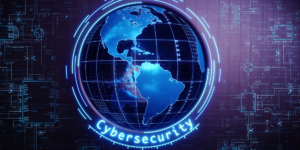CDEXOS Overview: In recent years, the world has experienced multiple crises, ranging from natural disasters, pandemics, cyber-attacks, and political instability. These interconnected crises are known as polycrisis, and they pose significant challenges for individuals and businesses worldwide. In this blog, we will discuss how cybersecurity plays a vital role in building resilience in a world of polycrisis…Enjoy!
Your Cybersecurity Solution Starts Here!
You need to evolve your Cybersecurity protection, but where do you start? CDEXOS helps organizations identify, protect and respond to cyber threats. Our mission prioritizes business decisions so you make informed decisions on data protection, cloud migration, and cybersecurity.
What is Resilience?
Resilience is the ability to adapt and recover from disruptive events. In the context of polycrisis, resilience is the ability to respond, recover and thrive despite facing multiple crises simultaneously. Building resilience requires a proactive and holistic approach that involves preparing for various scenarios and developing the necessary capabilities to respond and recover.
According to a study conducted by McKinsey & Company, companies that invest in building resilience are better equipped to navigate and recover from crises. The study found that resilient companies experienced fewer financial losses and recovered faster than their less resilient counterparts. In fact, the study showed that resilient companies were able to outperform their peers by as much as 30% during economic downturns.
Moreover, a survey conducted by the Pew Research Center found that 87% of Americans believe that being able to adapt to change and bounce back from adversity is essential to succeed in life. This highlights the growing importance of building resilience not just for businesses but also for individuals.
Overall, data shows that building resilience is crucial for both individuals and businesses to adapt and thrive in today’s world of polycrisis. By investing in building resilience, businesses can minimize financial losses and recover faster from disruptions, while individuals can better navigate challenges and achieve success.
Cybersecurity as a Vital Component of Resilience
In a world of polycrisis, building resilience is more critical than ever. Resilience is the ability to adapt and recover from disruptive events, and in today’s context, it means responding, recovering, and thriving despite facing multiple crises simultaneously. Cybersecurity plays a crucial role in achieving resilience by preventing, detecting, and responding to cyber threats that can cause significant disruptions to individuals and businesses alike.
Here are two data points to illustrate the importance of cybersecurity in building resilience:
The Cost of Cybercrime:
According to a report by Accenture, the cost of cybercrime is projected to reach $10.5 trillion by 2025, which is more than triple the amount in 2015. This staggering figure highlights the growing threat of cyber attacks and the need for robust cybersecurity measures to protect against them. Cyber attacks can target critical infrastructure, disrupt supply chains, and compromise sensitive information, causing lasting damage to individuals and businesses alike.
Impact of Cyber Attacks on Businesses:
A survey conducted by Hiscox found that the average cost of a cyber attack on a small business was $200,000, while the average cost for a larger business was $1.05 million. The survey also found that 60% of small businesses that suffer a cyber attack go out of business within six months. These findings show that the impact of cyber attacks on businesses can be significant and even fatal.
Importance of Cybersecurity in Polycrisis
The impact of polycrisis on individuals and businesses can be significant and long-lasting. In such times, cybersecurity plays a critical role in building resilience and protecting against cyber threats. Cybersecurity measures are essential for preventing, detecting, and responding to cyber attacks that can cause significant disruptions and damage.
Experts predict that the COVID-19 pandemic has accelerated the pace of digital transformation, resulting in increased dependence on technology and a higher risk of cyber attacks. As per a report by the World Economic Forum, cybercrime is one of the top ten risks facing the world in 2021. The report states that the COVID-19 pandemic has exposed vulnerabilities in cybersecurity, and the shift to remote work has created new opportunities for cybercriminals.
Therefore, businesses and individuals must prioritize cybersecurity as a critical component of resilience in polycrisis.
CDEXOS Summary
We live in a world of polycrisis, where individuals and businesses are facing multiple challenges simultaneously. Building resilience is essential to adapt and recover from these crises, and cybersecurity plays a vital role in achieving resilience. Cyber threats pose significant risks and challenges to individuals and businesses, and it is crucial to incorporate cybersecurity measures to prevent, detect, and respond to these threats. In today’s rapidly changing world, building resilience through cybersecurity is more critical than ever. By adopting a proactive approach, individuals and businesses can not only survive but also thrive despite facing multiple crises simultaneously. Therefore, it is essential to prioritize cybersecurity and build a culture of resilience that can withstand any challenge that comes our way. Let us work together to build a more secure and resilient future for all.
Let CDEXOS provide you with a complementary Cybersecurity Assessment by completing our request form today!
Sam Palazzolo, Founder/CEO





